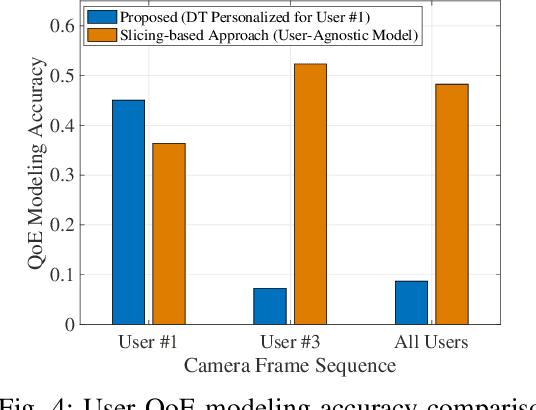QoE-oriented Communication Service Provision for Annotation Rendering in Mobile Augmented Reality
Paper and Code
Jan 13, 2025



As mobile augmented reality (MAR) continues to evolve, future 6G networks will play a pivotal role in supporting immersive and personalized user experiences. In this paper, we address the communication service provision problem for annotation rendering in edge-assisted MAR, with the objective of optimizing spectrum resource utilization while ensuring the required quality of experience (QoE) for MAR users. To overcome the challenges of user-specific uplink data traffic patterns and the complex operational mechanisms of annotation rendering, we propose a digital twin (DT)-based approach. We first design a DT specifically tailored for MAR applications to learn key annotation rendering mechanisms, enabling the network controller to access MAR application-specific information. Then, we develop a DT based QoE modeling approach to capture the unique relationship between individual user QoE and spectrum resource demands. Finally, we propose a QoE-oriented resource allocation algorithm that decreases resource utilization compared to conventional net work slicing-based approaches. Simulation results demonstrate that our DT-based approach outperforms benchmark approaches in the accuracy and granularity of QoE modeling.
 Add to Chrome
Add to Chrome Add to Firefox
Add to Firefox Add to Edge
Add to Edge